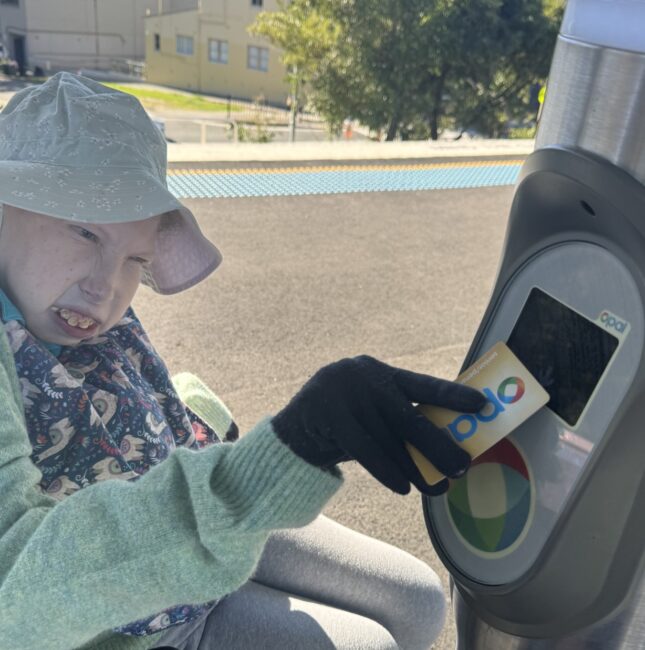Mediation helps Sofia & Mark
June 8, 2023
Shortly after Sofia arrived in Australia from South America on a student visa, she unexpectedly became pregnant. Without access to family support and being unable to work, Sofia had no option but to live in a refuge with her baby. With high emotions and stress fuelling the situation, Sofia’s relationship with the child’s father, Mark became strained, and communication was near impossible. CatholicCare’s Family Dispute Resolution team have been working with Sofia and Mark to pave a way forward that reflects each party’s needs.
When Sofia gave birth, no agreement was made regarding financial support and visits from Mark. Over time, communication became tense. Sofia would send abusive text message to Mark, which would prompt him to block her number. Unable to contact her child’s father, Sofia felt completely unsupported, and she desperately wanted to return to South America.
Strict rules about visitors to the refuge meant that Mark was unable to visit Sofia and baby. Sofia couldn’t move out of the refuge without some financial support from Mark, but he was unwilling to make payments if he couldn’t see the baby.
Sofia was also unable to work as she couldn’t access Centrelink childcare benefits unless Mark had an agreed percentage of time each week with the baby. CatholicCare referred Sofia to a law firm who advised and supported Sofia throughout all stages of the mediation process. Mark was able to engage a private solicitor who also gave him advice, assisted in preparing him for the discussions, and supported him in mediation.
Supported by their solicitors, Sofia and Mark attended a mediation session where these complex issues were raised, and proposals were made by both parties. Melanie, who works as a Specialist Lead in CatholicCare’s Family Dispute Resolution team, says the mediation was important because it gave both parties the opportunity to hear and see each other’s perspectives.
“The strained relationship over many months had meant that all modes of communication had been blocked and there appeared to be no way forward for them,” says Melanie.
“By the end of the mediation they still disagreed on most points, but they had a clearer idea of their path forward. They knew what the main issues in dispute were, understood the proposals that each of them had been willing to make and had the legal support available to take the next steps.”
Melanie explains that the success of a mediation process is not always based on whether both parties come to a mutual agreement. “A positive outcome in mediation can be as simple as facilitating the opportunity for clients to have a shared understanding of issues,” Melanie says. “They may not agree on how to resolve them, but if they can be open to hearing from each other and having their assumptions challenged, there is often space for those ideas to change.
Often the best mediation is one where the process has simply allowed a laying down of information on the table and each party has had the opportunity to respond to it. We’re also modelling effective communication in the hope that this influences future contact between the parties.”
One of the Family Dispute Resolution team’s current goals is to improve outcomes in legally assisted matters, such as Sofia and Mark’s case. “Our team is working to ensure that our clients are well prepared for a legally assisted mediation,” Melanie says. “This means making sure that both parties have the same opportunity for legal support by building relationships with local solicitors and speaking to solicitors before the mediation to prepare them for the process too. This gives all parties a clear understanding of what’s expected of them in the mediation and provides the best possible environment for communication.”
For Sofia and Mark the mediation served to provide a safe space to explore and understand the complexity of the situation they were in. While it didn’t end in an agreement, it was a very positive and sought after outcome.
More news stories like this one
NAIDOC Week 2025 – The Next Generation
CatholicCare is proud to celebrate NAIDOC Week y amplifying the voices, stories, and aspirations of Aboriginal & Torres Strait Islander people. This year’s celebrations are all about empowering the next generation of leaders - our young people who carry culture forward with pride, resilience and hope.
Read MoreTrain adventures give participants choice & control
When participants and their parents have their voices heard, wonderful things can happen. The words ‘choice and control’ are bandied about a lot in the disability space, but this story shows how crucial they are to a person’s wellbeing and happiness.
Read MoreDavika emerges from a web of violence
As they grew up, the two friends went their separate ways. Davika had settled into life as a single mum in India, and Priyanka had moved to Australia to marry an Australian man. Life, as Davika knew it, changed forever when Priyanka returned to India for a holiday with her husband and her husband’s Australian brother, Steve.
Read More


